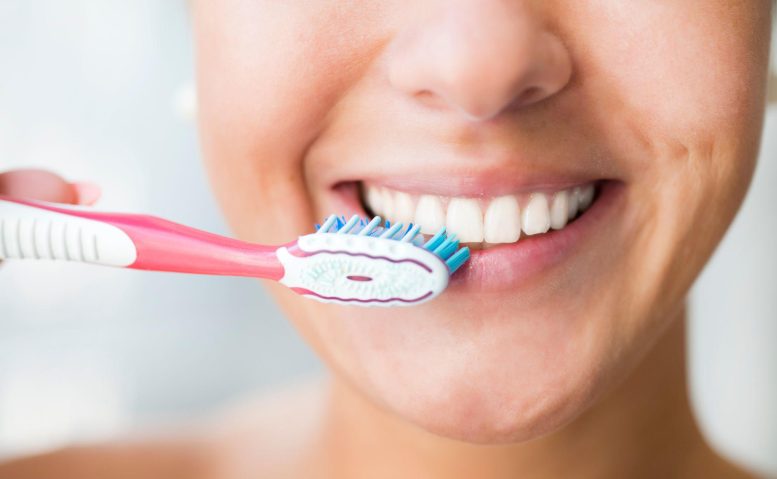
New research suggests a link between gum disease, tooth loss, and brain shrinkage in the hippocampus, an area associated with memory and Alzheimer’s disease. While not establishing causation, it underscores the potential importance of dental health for brain health.
A new study links poor dental health to a decline in brain volume.
Maintaining good dental health might be connected to improved brain health, according to a study published in Neurology, the medical journal of the American Academy of Neurology. The research indicated a correlation between gum disease and tooth loss with reduced volume in the hippocampus, a region of the brain involved in memory, and Alzheimer’s disease. However, the study does not establish that gum disease or tooth loss directly leads to Alzheimer’s but rather found an association.
“Tooth loss and gum disease, which is inflammation of the tissue around the teeth that can cause shrinkage of the gums and loosening of the teeth, are very common, so evaluating a potential link with dementia is incredibly important,” said study author Satoshi Yamaguchi, Ph.D., DDS, of Tohoku University in Sendai, Japan. “Our study found that these conditions may play a role in the health of the brain area that controls thinking and memory, giving people another reason to take better care of their teeth.”
The study involved 172 people with an average age of 67 who did not have memory problems at the beginning of the study.
Participants had dental exams and took memory tests at the beginning of the study. They also had brain scans to measure the volume of the hippocampus at the beginning of the study and again four years later.
For each participant, researchers counted the number of teeth and checked for gum disease by looking at periodontal probing depth, a measurement of the gum tissue. Healthy readings are from one to three millimeters.
Mild gum disease involves probing depths of three or four millimeters in several areas, while severe gum disease involves probing depths of five or six millimeters in several areas as well as more bone loss and can cause teeth to become loose and eventually fall out.
Researchers found that the number of teeth and amount of gum disease were linked to changes in the left hippocampus of the brain.
For people with mild gum disease having fewer teeth was associated with a faster rate of brain shrinkage in the left hippocampus.
However, for people with severe gum disease having more teeth was associated with a faster rate of brain shrinkage in the same area of the brain.
After adjusting for age, researchers found that for people with mild gum disease, the increase in the rate of brain shrinkage due to one less tooth was equivalent to nearly one year of brain aging. Conversely, for people with severe gum disease, the increase in brain shrinkage due to one more tooth was equivalent to 1.3 years of brain aging.
“These results highlight the importance of preserving the health of the teeth and not just retaining the teeth,” Yamaguchi said. “The findings suggest that retaining teeth with severe gum disease is associated with brain atrophy. Controlling the progression of gum disease through regular dental visits is crucial, and teeth with severe gum disease may need to be extracted and replaced with appropriate prosthetic devices.”
Yamaguchi said future studies are needed with larger groups of people. Another limitation of the study is that it was conducted in one region of Japan, so the results may not be generalizable to other locations.
Reference: “Associations of Dental Health With the Progression of Hippocampal Atrophy in Community-Dwelling Individuals: The Ohasama Study” by Satoshi Yamaguchi, Takahisa Murakami, Michihiro Satoh, Takamasa Komiyama, Takashi Ohi, Yoshitada Miyoshi, Kosei Endo, Takako Hiratsuka, Azusa Hara, Yukako Tatsumi, Tomoko Totsune, Kei Asayama, Masahiro Kikuya, Kyoko Nomura, Atsushi Hozawa, Hirohito Metoki, Yutaka Imai, Makoto Watanabe, Takayoshi Ohkubo and Yoshinori Hattori, 5 July 2023, Neurology.
DOI: 10.1212/WNL.0000000000207579
The study was supported by the Japanese Ministry of Education, Culture, Sports, Science and Technology; Keio University; Japan Arteriosclerosis Prevention Fund; Japanese Ministry of Health, Labor, and Welfare; Teikyo University; Pfizer Japan; Bayer Yakuhin; Chugai Pharmaceutical; Daiichi Sankyo; Astellas Pharma; Takeda Pharmaceutical; Health Care Science Institute; Health Science Center; and Takeda Science Foundation.




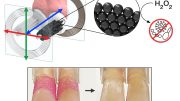

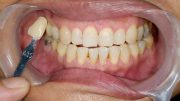
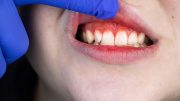
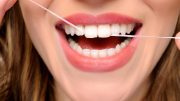
“While not establishing causation, …”
Without doing that, Occam’s Razor suggests that they are looking at a spurious correlation associated with aging.
I don’t think gum disease and tooth loss has anything to do with with a reduced volume in the hippocampus. People with gum disease generally don’t look after themselves physically or mentally resulting from poor self esteem, apathy, lack of learning new things, etc. The gum disease linkage should really be connected to a person not looking after their wellbeing rather than hippocampus shrinkage.